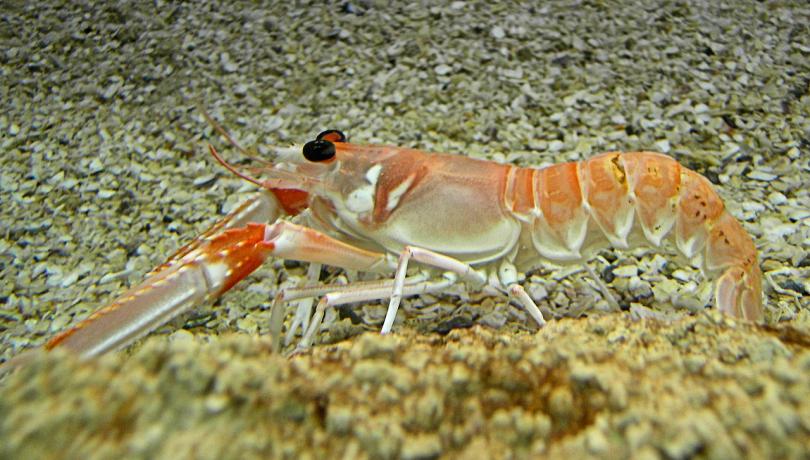The ICM-CSIC is working hard to implement measures to mitigate pain, distress or suffering in farmed aquaculture species.

It is estimated that by 2050 the world population will have grown by 50% and, consequently, global protein consumption will also increase. This will make it necessary to increase animal production and, in particular, aquatic production, which will require improving the efficiency and sustainability of current aquaculture and fishing processes.
According to researchers at the Institut de Ciències del Mar (ICM-CSIC) in Barcelona, this means improving the welfare of exploited aquatic species. Nowadays, there are different regulations and protocols to ensure the welfare of fish and cephalopods cultivated in the laboratory, and in the case of crustaceans, it is expected that these can be implemented in a near future, but there is no legislation regulating the production of aquatic species.
In this frame, last February the ICM-CSIC, together with researchers and managers from other national and international organisations, organised a course on the animal welfare of aquatic species, mainly for professionals working in public administrations and academics from Latin America.
The aim of this training, which is part of a programme to improve the management of marine resources led by the CSIC and financed by the AECID (Spanish Agency for International Development Cooperation) within the Interconnecta Project, that seeks to increase aquatic productivity in Latin American and Caribbean countries, is to improve aquatic production methods in these countries by applying measures that guarantee animal welfare, enhance the product quality and price and, thus, improve its acceptability to consumers.
The legislative framework
There is no legislation in the European Union that regulates and ensures the application of available strategies and protocols aimed at preserving animal welfare by fishing and aquaculture companies.
However, in Spain, some companies have recently started to apply, on a voluntary basis, measures to minimise the suffering of species caught at sea. This is the case of pre-slaughter stunning of the Atlantic bluefin tuna or improvements in the turbot and prawn aquaculture.
"These improvements imply an economic cost, but at the same time they contribute to improve the quality of the product ", explains Guiomar Rotllant, researcher at the ICM-CSIC, coordinator of the course and expert in crustaceans. According to her, "it is the consumer who stimulates the implementation of practices that ensure animal welfare by willing to pay a higher price for a product when it has been obtained respecting the appropriate requirements of welfare and sustainability".
In Catalonia, both the ICM-CSIC ethics committee and the Department of Territory and Sustainability of the Generalitat are applying the European Union's strict protocols and regulations that regulate animal experimentation for scientific purposes on fish and cephalopods.
Hence, the staff of the Institute continues investigating to implement measures to mitigate pain, distress or suffering in exploited aquatic species, thus promoting their production with the highest possible welfare standards.